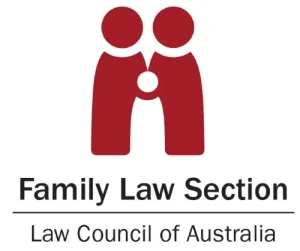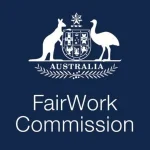Hearing Loss – Terms of Engagement (SA)
The following terms apply to all hearing loss clients within South Australia
1. Introduction
We confirm that you wish for us to act for you in a South Australian workers compensation claim.
We are prepared to accept act for you in this matter upon your agreement to the following terms.
2. Scope of the Legal Work
2.1 You have instructed us to advise, assist, and, if required, represent you in a claim for compensation arising from a work injury.
2.2 This engagement covers your noise induced hearing loss and tinnitus.
2.3 We will accept instructions from you only.
3. Doing the Work
As previously advised, you have a primary legal practitioner responsible for and in control of this matter. This legal practitioner is also the person whom you may contact with regard to legal costs. However, there may be changes of legal practitioner responsible over time (which will be notified to you) and other legal practitioners or legal staff may work on the matter from time to time as we consider necessary.
4. Fees
4.2 This fixed fee is different from the rates set out in the Higher Court Scales of Fees. Although fixed fee charging is not uncommon for these types of services, there may be other legal practitioners who may be prepared to act for you and charge according to Higher Court Scale of Fees. You are entitled to seek independent legal advice regarding this or any other term of this agreement before you sign it.
4.3 There may be other legal practitioners who would be prepared to act for you and charge you differently and this may result in a lower charge. You are entitled to seek independent legal advice regarding this or any other term of this agreement. Our fixed fee arrangement may well result in a lower charge than if the Higher Court Scale of Fees was used.
4.4 We charge you fees for our services if your claim is accepted for compensation but not if it is accepted for medical expenses only (in which case we will not charge you fees for our services). We will also charge you if your claim resolves by way of you receiving a redemption payment (regardless of whether the claim is accepted or rejected).
4.5 If your claim is rejected, then a dispute may be lodged in the South Australian Employment Tribunal. If that happens then we charge for our work performed from the point of lodging this dispute in accordance with the Higher Court Scale of Costs, as varied by the Court from time to time. It is a term of this agreement that any increase in the Higher Court Scale will apply automatically to you. A copy of the Scale of Costs is attached. This cost is in addition to our fixed fee.
4.6 We expect that if a dispute is lodged in the Tribunal, then we will be able to recover a contribution towards our fees from the other side. Please let us know if you desire more information about what can be recovered.
5. Disbursements
5.1 In addition to our fees, we charge you for the out of pocket expenses incurred or paid on your behalf (called “disbursements”).
5.2 Out of pocket expenses incurred by us may include, but are not limited to, the cost of medical reports and, if required, barristers’ fees, international calls and couriers are charged at the cost to us. In most cases we can get disbursements paid by the entity who manages your claim. In rare instances where such costs are not paid by that entity then these costs are your responsibility.
5.3 Should we see a need to incur expenses on your behalf which are unusual as to their nature or extent (including in litigious matters expenses which are unlikely to be recoverable from the other side if you win and obtain a costs order), we will provide you with advice and seek your specific instructions before incurring such expenses.
6. Goods and Services Tax (‘GST’)
Our fees are subject to GST. Under these Terms the amounts or rates quoted for fees are inclusive of GST.
It is a term of this engagement that you, as client, pay not only our fees but any GST in respect of those fees.
To the extent that disbursements we incur for you or on your behalf are subject to GST, GST will also be payable by you in respect of those disbursements.
7. Legal Costs – Your Right to Know
You have the right to:
- negotiate a costs agreement with us;
- receive a bill of costs from us;
- request an itemised bill of costs after you receive a lump sum bill from us;
- request written reports about the progress of your matter and the costs incurred in your matter;
- apply for costs to be adjudicated within 6 months if you are unhappy with our costs;
- apply for the costs agreement to be set aside;
- make a complaint to the Legal Profession Conduct Commissioner (if you believe there has been overcharging);
- accept or reject any offer we make for an interstate costs law to apply to your matter;
- notify us that you require an interstate costs law to apply to your matter.
For more information about your rights, please read the fact sheet titled Legal Costs—your right to know. You can ask us for a copy or obtain it from the Law Society of South Australia (or download it from their website).
8. Cost Estimates
8.1 We estimate our fees for pursuing a workers compensation claim to be $4,180.00 (incl. GST) if the claim is accepted without a dispute in the Tribunal.
8.2 If your claim is disputed in the Tribunal then we estimate our total fees would be in the range of $4,950.00 (incl. GST) to $5,500.00 (incl. GST). This is an estimate only and our fees may be less or more depending on how much work is required to succeed in your matter. We are normally able to obtain a contribution towards legal fees from the other side in Tribunal proceedings as identified above.
8.3 Fees for our services do not include disbursements, which you may be required to pay in accordance with clause 5 regardless of whether or not we are successful in your matter.
8.4 The major variables that will affect the calculation of these costs are:
- A change in your circumstances;
- A change in your instructions to us;
- Difficulties dealing with the other side / their solicitors;
- The extent that the claim is defended/pressed by the other side, including the extent to which they engage in interlocutory disputation;
- The availability of Tribunals/Courts to hear the matter and the extent to which it may have to be adjourned because of unavailability of the Tribunals/Courts;
- The experience and cost of barrister which you instruct us to brief;
- The number of experts which turn out to be required, and the rates charged by them;
- The extent to which you require information and feedback as to the progress of the matter;
- The extent to which you cooperate with us in prosecuting the matter, by for example, promptly returning telephone calls and responding to letters or emails.
8.5 We emphasise that the estimate is just that, a preliminary estimate. It is not a quote or a fixed maximum charge. The actual costs will be based on the work actually done and the expenses actually incurred.
9. Updating of Advice
You have the right under clause 17 of Schedule 3 of the Legal Practitioners Act to be notified of any substantial change to the matters to be disclosed to you under clause 10 of Schedule 3, including any substantial change to the estimated costs of work.
10. Litigation Matters
10.1 The estimate in clause 8 above only refers to the costs we charge you. In most cases the Tribunal will make an Order for the insurer to pay a proportion of your costs, even if you are unsuccessful. In rare circumstances the Tribunal may order you to pay some or all of the costs of other parties if you are unsuccessful but only if your claim is unreasonable, or without substance or merit. Again, this is rare.
11. Billing
11.1 Deferred account – we have agreed to an arrangement with you for your account for our legal fees to be deferred until your claim is finalised. If for any reason you do not receive a payment at the conclusion of your claim, or you cease your instructions to us before your claim is finalised, your legal fees would then be due to be paid.
11.2 Accounts are to be paid within seven (7) days after delivery. Interest at the rate of [4.5%] per annum which is the Cash Rate Target as of the date the bill is issued plus 2%. Interest begins to run on our accounts once they have remained unpaid for thirty (30) days and shall be compounding and calculated on a daily basis. If an account does remain unpaid after seven (7) days after delivery, we may terminate the engagement.
12. Trust Money
12.1 We may ask you to pay money into our trust account from time to time to cover reasonably anticipated expenses, including counsel fees. These moneys are retained in our trust account for payment of disbursement or will be applied to our invoices (including GST) when they fall due for payment or will be used in payment of particular expenses of this firm which are incurred on your behalf.
12.2 Should the matter proceed to trial, we will ask you to provide to us, at least 21 days prior to the trial date, the moneys reasonably estimated by us to cover the full cost of the trial, including counsel, court and witness fees. We will hold those moneys in our trust account against the anticipated costs and disbursements.
12.3 If you do not comply with any such request, we may cease acting for you in accordance with the following clause.
13. Termination
13.1 Your Right to Terminate this Agreement
You have the right to terminate our services at any time.
13.2 Cooling off period
You also have a five (5) business day cooling-off period commencing one business day after you sign this agreement. To exercise this right, you must provide us with written notice within this timeframe to the effect that you intend to terminate this agreement.
13.3 Our Right to Terminate this Agreement
We may terminate this agreement if there has been:
13.3.1. Good cause
This includes, but is not limited to, if you do not comply with the terms of this agreement, including clause 16 below, or if, in our view, the necessary relationship of trust and confidence no longer exists between us. We would give you reasonable notice and would then cease acting for you and, in any litigation, we would apply to be removed from the Court file as your legal practitioner.
or
13.3.2 Unreasonable refusal to accept a settlement offer
This occurs if you refuse to accept an offer to settle your matter if we have advised you that it is unreasonable to refuse in the circumstances.
13.4 Payment of fees on termination
All fees and expenses incurred prior to termination by either you or us are immediately billable to you as though you had been successful in your matter in the manner described in clause 4 above (except where you have terminated our Agreement as per the above Cooling Off period).
13.5 Holding of documents and monies until payment received
Subject to any court order or agreement to the contrary, we are entitled to retain all moneys, papers and records relating to this matter until our bills are paid.
14. Conflicts of Interest
We will not intentionally become involved in a situation where there is a conflict of interest of a legal nature between you, us and/or another client but if through inadvertence or unforeseen circumstances this should occur we may be obliged to terminate the engagement in this matter.
15. Storage of Records
15.1 We operate an electronic filing system. We do not store paper records for the majority of your documents. In most cases we will scan your documents and give them back to you.
15.2 Your privacy is important to us. Boylan Lawyers (Boylan’s) privacy policy is framed in the context the Privacy Act 1988 and the Australian Privacy Principles contained therein. Boylan’s collects personal information in the provision of legal services. The purpose of collection of this personal information is to enable Boylan’s staff to provide legal services. In all cases, the consent of the client about supplying information is required. Confirmation of consent may be evidenced by the provision of a terms of engagement or instruction booklet signed by the client to whom the information relates.
15.3 We store your files for seven (7) years after completion of the matter. We do not charge for this storage but if you require us to retrieve anything stored by us after completion of the matter, you agree that we will charge you a reasonable fee for that service. You authorise us to destroy any of your files retained by us after seven (7) years following the completion of the matter. We encourage you to collect your file from us for your own records within seven (7) years after completion of the work.
15.4 All reasonable steps must be taken to keep personal information confidential, destroy or de-identify personal information if it is no longer needed for any purpose for which the information may be used or disclosed. The information obtained cannot be disclosed to any other person without the client’s consent being provided in the terms of engagement or through their instructions.
15.5 Boylan’s staff members are trained to maintain professional standards of confidentiality in their contact with clients, barristers and other professionals. Boylan’s has a policy of requiring staff to sign confidentiality agreements re the non-disclosure of personal information of clients. This is in addition to the staff being bound by the professional conduct rules.
15.6 Files are available only to staff members who have a need to use them for the purpose of providing the legal service. Computer data bases containing information are protected by passwords known only to Boylan’s staff. Boylan’s collect electronic data containing matter documents, such as; correspondence, statements, Court Documents, file notes, terms of engagement, client authorities and other documents relating to a specific matter. Where this data is cloud hosted, the cloud hosting services are to be provided in Australia. Boylan’s also collect electronic data containing client contact information, such as; name, address, email, phone number and other contact information. Where this data is cloud hosted it may be hosted in Australia or overseas. Whether data is hosted in Australia or Overseas through a cloud hosting provider, all reasonable steps will be taken to ensure the information is appropriately protected. Emailed information is handled confidentially according to Boylan’s policy and procedures.
15.7 Personal information held by Boylan’s has been provided, with consent, by clients themselves or referrers on their behalf. A client may have access to his/her personal details which are held in his/her own personal record in accord with the provisions of the Australian Privacy Principles. Information to be provided to client must be provided to him/her personally after it has been clearly established that he/she is the person about whom the information is requested. If a client considers that Boylan’s has breached his/her privacy or this policy, he/she may complain to the Managing Partner.
16. Your Agreement to Work with Us
It is a term of this agreement that you will reply to correspondence, return phone calls, respond reasonably to requests for instructions, information and documents, and pay accounts or pay money into trust when reasonably required. If you do not work with us in these ways, then we may terminate this agreement. In such circumstances, you agree that you will file a notice of acting in person in any current court proceedings in which we have been acting for you.
17. Variation
These terms can only be effectively varied in writing.
18. Authorisation
It is a term of the engagement that should we receive any money from you or on your behalf other than for a specified purpose, we are at liberty to apply that money in payment of our outstanding accounts if nothing has been heard from you disputing the accounts within 7 days after delivery.
19. Copyright
We own the copyright in all documents we author in supplying our services and you have the right to use those documents only for the purposes for which they are supplied.
20. Applicable law
These Terms are governed by South Australian law. All parties consent to the non-exclusive jurisdiction of the courts of South Australia with regard to any dispute arising under or out of them.
21. Comments
Our aim is to provide you with high quality and reasonably priced legal services. We value your feedback and encourage you to contact our office with any concerns or comments about the conduct of this matter.
22. Your Agreement to These Terms
22.1 Please contact Boylan Lawyers if there is anything in these Terms which you do not understand or with which you disagree. You are also entitled to seek independent legal advice on the contents of the above Terms.
Part 2—Higher Courts costs scale
Note—
The amounts allowable under this Scale may be increased under rule 192.5 of the Rules.
3—Higher Courts costs scale
- Subject to subrule (2), the Higher Courts costs scale is set out in the following
| Higher Courts costs scale | ||
| Item | Description | Amount |
| Documents | ||
| 1 | Drawing any document of importance, other than documents mentioned under item 2, 10 or 11 (including original and the lawyer’s file copy). | $37.50—for each ¼ page. |
| 2 | Drawing proofs, indices, formal lists, extracts from other documents, lists of authorities, or other formal documents (including original and the lawyer’s file copy). | $19.00—for each ¼ page. |
| 3 | Engrossing documents, when copying or scanning is not appropriate (including original and the lawyer’s file copy). | $5.50—for each ¼ page. |
| 4 | Perusing documents (including electronic documents). | a range between $2.75 and $10.75—for each ¼ page. |
| 5 | Examining documents (including electronic documents), when a perusal is not justified. | $0.70—for each ¼ page. |
| 6 | Documents produced by copying or scanning, or receiving emails, faxes or any other electronic transmissions. | $0.40—for each sheet. |
| Attendances and Communications | ||
| 7 | Attendances and oral communications, whether personal or by electronic communication, including attendances to swear or take affidavits. |
Either: (a) for each 6 minute unit by a lawyer involving skill—$40.00; (b) for each 6 minute unit by a lawyer not involving skill—$24.00; (c) for each 6 minute unit by a non- lawyer employed or engaged by a lawyer—$19.00; or (d) for arranging appointments, including all work involved—$27.00 per person. |
| 8 | Attending hearings, including preparation, and when not attending as instructing lawyer for counsel. |
Either: (a) for an ordinary hearing—$200.00; or (b) if protracted (beyond 5 units), for each 6 minute unit of hearing time— $40.00. |
| 9 | Filing or delivery of documents other than personal service, when no other attendance is properly allowable. | $27.00. |
| Higher Courts costs scale | ||
| Item | Description | Amount |
| Correspondence | ||
| 10 | Correspondence, including original to send and the lawyer’s file copy, and the ordinary postal or transmission expenses—whether sent by letter, email, SMS or fax. | $27.00—for each ¼ page. |
| 11 | Circular correspondence, including original to send and the lawyer’s file copy, and the ordinary postal or transmission, expenses—after the first. | $13.50—for each letter, including copying for subsequent pages (regardless of the number of pages). |
| Miscellaneous | ||
| 12 | Paying disbursements by whatever means and including all work and associated expenses. | $27.00 |
| 13 | Preparation of Pleadings Books, Tender Books, Application Books, Appeal Books and Briefs, including indices, pagination and binding. | $2.00—for each page. |
| 14 | Lump sum on a default judgment. | $2,731.00. |
- The table in subrule (1) is subject to the notes in rule
4—Notes
General
- The amount allowed for each of the items in the table in rule 3(1) is to be at the discretion of the taxing officer, who is at liberty, in the particular circumstances of the matter, to disallow an item entirely or allow a greater or lesser amount for an
Example—
The taxing officer may allow a greater amount where the matter is of importance or difficulty.
- The costs allowed in the scale do not include Goods and Services Tax (GST), which is to be added except in the following circumstances—
- GST must not be included in a claim for costs if the receiving party is able to recover GST as an input tax credit;
- if the receiving party is able to obtain an input tax credit for only a proportion of the GST, only the portion which is not eligible for credit can be claimed;
- if there is a dispute as to whether GST is properly claimed, the receiving party must provide a certificate signed by the lawyers or auditors of the receiving party as to the extent of any input tax credit available to the receiving
Attendances
- A 6-minute unit comprises 6 minutes or part thereof, but no part will be allowed as a full unit if it is unreasonable to do
- When a lawyer is instructing counsel, the lower attendance rate should be allowed if the lawyer is merely assisting by being present, but the higher rate should be allowed if the lawyer is more actively involved, for example, by proofing witnesses, preparing indices,
Documents and perusals
- Unless the taxing officer considers that there is good reason to depart from it, pages for items in the tables in subrules 3(1) and 3(2) must be measured by compliance with the prescribed formats under rule 31.2 of the Rules and on the basis that a full page contains 44 lines and a quarter page contains 11 lines, where—
- a part of a quarter page is to be treated as a full quarter page; and
- each page of a claim for costs may be allowed as a standard
- If a document is prepared in a size other than A4, the amounts to be allowed may be increased or decreased in the discretion of the taxing
- In relation to perusals—
- a rate towards the maximum rate for perusal is appropriate for documents such as pleadings, particulars, advices and opinions and for more complicated medical and expert reports;
- a middle range figure is appropriate for standard expert reports, lists of documents and medical reports;
- a rate towards the lower rate is appropriate for notices of acting, notices of change of address for service, ordinary correspondence, special damages vouchers and the like; and
- in cases in which a large volume of documents must be perused, an hourly rate may be allowed by the taxing officer instead of a perusal
Copying, scanning and emailing
- When a substantial number of sheets are, or should be, photocopied or scanned at the same time, regard may be had to commercial photocopying rates in respect of multiple copies of the same document, for each sheet after the first.
- When multiple emails or SMSs are claimed, those dealing with the same issues over a period of 48 hours extending over not more than 3 consecutive business days will be treated as
Disbursements
- Allowable disbursements must whenever possible be included in the same item as the corresponding claim for lawyer’s costs, but within the disbursements
- Only the amount of a disbursement actually paid or payable must be shown in the claim for costs as a disbursement; and, if a disbursement is yet to be paid, this must be specially
- Such allowance for kilometrage by motor vehicle or other conveyance will be made as the taxing officer considers
Schedule of Costs
- A claim for costs must show—
- the time spent on attendance (when applicable);
- the number of A4 pages (or the equivalent) contained in any document for which a charge is made;
- the name of a lawyer and the status of a clerk in respect of whom an attendance is charged;
- a separate identifying number for each item and the date of the item;
- the items of work and disbursements in chronological order with a total of disbursements and counsel fees after the total of the solicitor’s charges; and
- succinctly the nature of the work done and, where possible, use recognised abbreviations;
Examples—
att of sol X on cl, tel call by sol Y on cnsl, ltr to witnss, att of sol Z at dir hrng
where ‘sol’ denotes solicitor, ‘cl’ denotes client, ‘cnsl’ denotes counsel, ‘ltr’ denotes letter and ‘att’ denotes attendance.
- Copies of accounts for counsel fees and other external disbursements must be attached to the claim for costs.
- When the Court is required to tax costs both as between party and party and lawyer and client, the appropriate form must be modified by the applicant so as to provide for the inclusion of both party and party and lawyer and client costs and the respondents’ respective responses.











